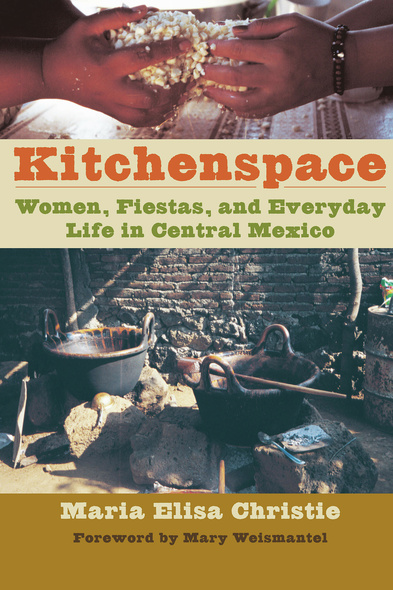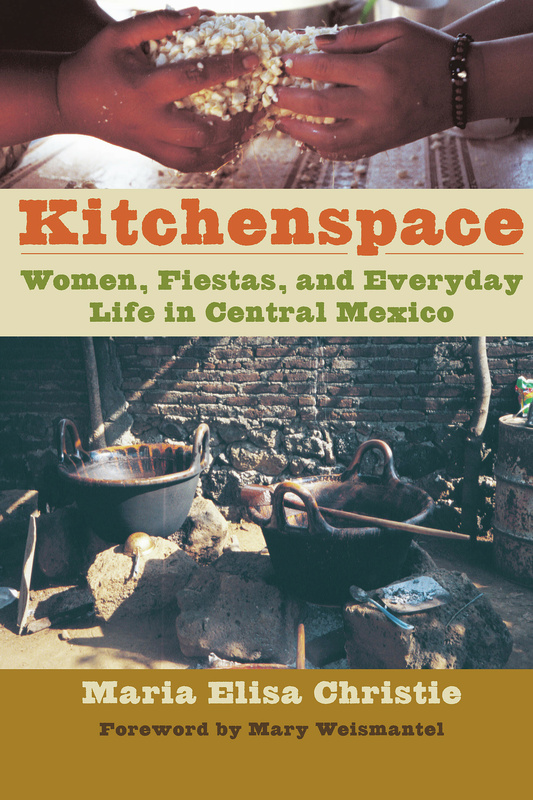Kitchenspace
Women, Fiestas, and Everyday Life in Central Mexico
Throughout the world, the kitchen is the heart of family and community life. Yet, while everyone has a story to tell about their grandmother's kitchen, the myriad activities that go on in this usually female world are often devalued, and little scholarly attention has been paid to this crucial space in which family, gender, and community relations are forged and maintained. To give the kitchen the prominence and respect it merits, Maria Elisa Christie here offers a pioneering ethnography of kitchenspace in three central Mexican communities, Xochimilco, Ocotepec, and Tetecala.
Christie coined the term "kitchenspace" to encompass both the inside kitchen area in which everyday meals for the family are made and the larger outside cooking area in which elaborate meals for community fiestas are prepared by many women working together. She explores how both kinds of meal preparation create bonds among family and community members. In particular, she shows how women's work in preparing food for fiestas gives women status in their communities and creates social networks of reciprocal obligation. In a culture rigidly stratified by gender, Christie concludes, kitchenspace gives women a source of power and a place in which to transmit the traditions and beliefs of older generations through quasi-sacramental food rites.
This book makes an important addition to the emerging feminist literature on culinary labour.... Christie has conveyed an invaluable perspective on society, ecology and even cosmology through the words of hardworking Mexican women.
This beautifully written book focuses on women's experiences in kitchenspace, an understudied social space in Mexico and throughout the world. Turning the pages of the book, I felt as if I were savoring a creation. . . . The book documents the creative ways in which women deal with poverty and tears in family and community bonds in the context of migration and globalization. Like artists, the women in this book use objects and symbols to tell us to pay attention to the role of food in social life; their words and experiences have the effect of reminding us of important understandings we have mislaid or forgotten.
Maria Elisa Christie is Program Director for Women in International Development at Virginia Tech's Office of International Research, Education, and Development.
- Foreword by Mary Weismantel
- Preface
- Acknowledgments
- A Taste of Three Places
- Introduction
- Points of Departure
- Part One. Women of the Circle
- Chapter One. Xochimilco: "Short on Days to Celebrate Our Fiestas"
- Chapter Two. Ocotepec: "Not Letting the City Eat This Town Up"
- Chapter Three. Tetecala: "Here Mangos Used to Be Like Gold"
- Part Two. Kitchenspace Narratives
- Chapter Four. Women of Tetecala: "You Have to Be Ingenious in the Kitchen!"
- Chapter Five. Women of Xochimilco: "It Is Better for the Pots to Awaken Upside Down"
- Chapter Six. Women of Ocotepec: "We Used to Have a Lot of Pigs"
- Food for Thought
- Notes
- Glossary
- Bibliography
- Index





